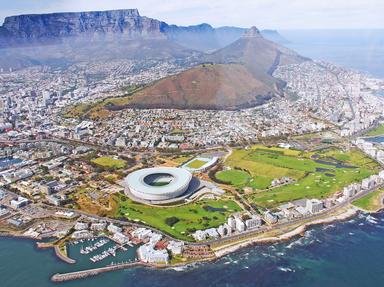Quiz Answer Key and Fun Facts
1. South Africa was effectively established in 1652 when a Dutch colonial commander landed at the Cape of Good Hope and created a refreshment station for ships on the India trading route. What is the name of this first settler in South Africa?
2. By the early 1800s Dutch naval and mercantile power had began to fade, and another major world power had taken control of the Cape Province in the new country developing at the southern tip of Africa. Which country sent settlers to the Cape in 1820?
3. In the 1830s the Dutch descendants of the first settlers in the Cape Colony, or Boers, were becoming unhappy with being under British rule. A number of families uprooted and started moving inland to be able to live freely. What was this movement called?
4. By the mid-1800s in South Africa large numbers of "Voortrekkers" had settled in what is now known as the Free State and Transvaal, and were living free of British rule. All that changed in March 1886 when a prospector came across a very important reef on the Witwatersrand. What did it contain?
5. After years of skirmishing and open rebellion in the young South African republic, Boer president Paul Kruger declared war on the British in 1899. The British responded to the Boer guerrilla attacks by employing which method, which would be today be considered a very serious war crime?
6. Despite the two World Wars South Africa grew economically between 1910 and 1960, but there were many disenfranchised groups that were left behind as the country became Afrikaner-controlled. The all-time low came in and after 1948. Which political ideology was formalized in this year and became law throughout South Africa?
7. On 21st March 1960 an event happened in South Africa that would galvanize the Black community into more aggressive resistance, when the police opened fire and killed 69 people during a protest march. Where did this happen?
8. In the early 1960s in South Africa Nelson Mandela had been a freedom fighter for some years, resorting to guerrilla tactics and meetings with anti-apartheid activists in several countries. On 5 August 1962 he was captured. What was the name of his historic trial?
9. What was the name of the man who released Nelson Mandela from prison and set reforms in motion, leading to the end of apartheid as a political system in South Africa?
10. What makes 27th April 1994 such an important date in the history of South Africa?
Source: Author
strudi74
This quiz was reviewed by FunTrivia editor
bloomsby before going online.
Any errors found in FunTrivia content are routinely corrected through our feedback system.
